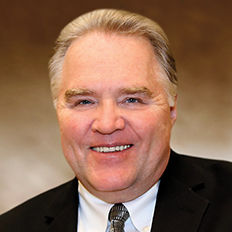 Erase Enterprises' Kevin Mellott
Erase Enterprises' Kevin Mellott
Today's corporate data thieves have developed remarkably
sophisticated methods of stealing information from unsuspecting business
travelers' laptops and mobile devices. BTN editor-in-chief Elizabeth West
recently spoke with Blancco chief strategy officer Richard Stiennon and Erase
Enterprises president Kevin Mellott about the data-security risks that
travelers face and the steps their organizations can take to protect
information.
BTN: What
advice can you give to business travelers about the actual theft of their
devices?
 Blancco's Richard Stiennon
Blancco's Richard Stiennon
Kevin Mellott: The first thing that we [suggest] is
removable hard drives. We don't like anybody taking a laptop or any kind of
device where they cannot remove the hard drive, or at least get the
intellectual property out of the device to keep it separate from the device
itself.
The second point is compartmentalization. Never let one
computer have all the information. If you're traveling in a group, have the
encryption codes on one device and the data on a different device, so if
someone steals a computer, they can't decrypt the information. We're also real
big on remote wipes so that when a person steals a computer, the minute they
plug it into the Internet, we can wipe the drive remotely so they can't get the
data.
Richard Stiennon: No. 1, now unfortunately in
conflict with the new [inflight carry-on electronics] requirements, was never
to let the device out of your control. It's always with you; it's under the
seat in front of you. So now, you've got this overwhelming issue of what do you
do if your devices are no longer going to be in your control, and our No. 1
recommendation is to limit the data that's on those devices. We've encountered
this before, of course, with people traveling into hazardous data
environments—typically, U.S. business travelers traveling to China.
BTN: You
mentioned the U.S. Transportation Security Administration's ban of carry-on
electronic devices on inbound flights from 10 Middle Eastern airports. Are
there additional issues that regulation brings to the corporate travel space?
Stiennon: There's a kind of coincidence with the
travel ban on electronic equipment and more concern over lithium batteries,
which are no longer allowed to be shipped en masse on airplanes. Combine the
two, and you just won't be able to take your laptop. I think that's going to
change corporate travel business practices. It means you'll be traveling to
your destination and must get access once you get there. Corporations will have
to figure out how to provide equipment for you that can quickly be spun up,
probably using the cloud and virtual desktops in order to access that
information. That's great, because the data will be under corporate control all
the time.
BTN: You
mentioned there are certain markets where you should simply assume that your
data will be compromised. Which areas top that list?
Stiennon: Nowadays, of course, Russia would be on the
list. Oddly enough, traditionally in the security space, France was on the
list. France was known for having active state-sponsored industrial espionage.
Even though people are very careful about transporting data through France,
even France had bans on using encryption just because they needed access to
that data.
Countries That Don't Honor IP Laws
Office of the U.S.
Trade Representative's 2016 Special 301 Report
Priority Watch List
- Algeria
- Argentina
- Chile
- China
- India
- Indonesia
- Kuwait
- Russia
- Thailand
- Ukraine
- Venezuela
Watch List
- Barbados
- Bolivia
- Brazil
- Bulgaria
- Canada
- Colombia
- Costa Rica
- Dominican Republic
- Ecuador
- Egypt
- Greece
- Guatemala
- Jamaica
- Lebanon
- Mexico
- Pakistan
- Peru
- Romania
- Switzerland
- Turkey
- Turkmenistan
- Uzbekistan
- Vietnam
Click here for more detailMellott: There are two things you have to remember:
1) There are countries that actively participate in intelligence collection on
an economic level. 2) There are countries that do not honor any kind of
intellectual property laws. The first thing we tell our clients is to get a
copy of the U.S. Trade Representative's 301-R report. The 301-R comes out every
April, and it lists all the countries in the world that do not honor
intellectual property laws. [Editor's note: See the list on page 38]. The
minute you're going someplace that's in that list, you need to think twice
about your data.
BTN: What are
other ways that data can be breached while traveling that don't necessarily
involve actual theft?
Mellott: Itinerary control is essential, and it
starts with the fact that if nobody knows where you are or where you're going,
it's pretty hard for them to intercept you or your data. Once they've targeted
your corporation way before you travel—and this happens quite often on the
international side—they're inside the system to see who's flying where and
when.
[Certain devices] allow you to mimic any wireless contact in
the area. Then you get on the airplane, and people are looking over your
shoulder. It absolutely blows my mind the types of data I see from people
working on their laptops where I can look over the seat or to my left or right
and see proprietary information.
Then we get into Bluetooth intercept, where you start
intercepting Bluetooth devices to get into the laptop. And it does not take
much to pay a maid to let you get into the room and drop an "execute file"
flash drive or go in and copy the drive.
BTN: Is
interception still possible even when you are tunneling through with a virtual
private network?
Stiennon: I often recommend using a separate VPN, not
the corporate VPN, because any man in the middle can still intercept those
connections. But add the additional hop of a third VPN and now, even though you're
going through a rogue access point that might have had an initial encrypted
connection to the access point, you're still tunneling over that encrypted
connection all the way to your destination.
That gives you the ability to work inside hotels—because
hotels are rather notorious for not having good security—or even in the sky
lounge of the airport. Don't just use the open Wi-Fi they provide.
BTN: How can
companies increase compliance to security policies they already have in place?
Stiennon: It comes down to technology. Remember the
days when corporate policies were that you must reset your password every 30 days?
Nobody ever did that until Microsoft instituted automatic password reset
requirements. Then it happened. Technology is your enforcement tool.
As for data hygiene—that's where having an agent on the
devices that takes care of securely erasing everything that's in the trash bin
on a regular schedule, and securely erasing old copies of documents after they've
been updated, so you don't have all this data that could be extracted lying
around—that's the key to policy enforcement: taking control over your own data.
BTN: Leaving
devices at home, erasing data, using multiple VPNs. All of that makes work
really hard and can slow travelers down.
Mellott: Well,
security is inconvenient. There's no way around that, but the inconvenience of
having data compromised is way worse. If they get your data, if they penetrate
your system, it may not just be you they're after. They may counterfeit your
laptop so that when you come back to the States and you go into the company
network, they gain access for a bigger picture. So compliance enforcement is
one thing, but another important piece is employee education. They have to know
what's at stake.